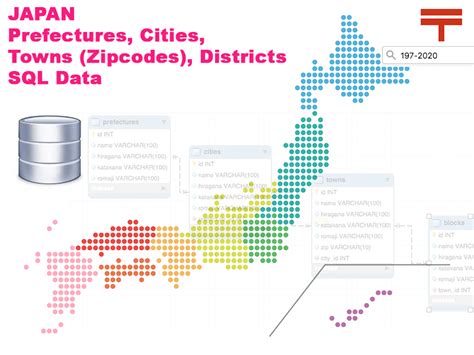Introduction

The Japanese postal system is renowned for its efficiency and accuracy, and an integral part of this system is the use of zip codes. These codes play a crucial role in delivering mail smoothly and ensuring that it reaches the intended recipient. In this comprehensive guide, we will delve into the world of Japan zip codes, exploring their history, structure, and practical applications.
History of Japan Zip Codes
The concept of zip codes was first introduced in Japan in 1968, with the aim of streamlining the postal delivery process. Prior to this, addresses in Japan were often long and complex, making it challenging for mail carriers to locate the correct recipient. The introduction of zip codes brought a much-needed solution to this problem.
Structure of Japan Zip Codes
Japanese zip codes consist of seven digits, divided into three parts:
- First three digits: Represent the prefecture or postal district.
- Fourth and fifth digits: Indicate the city, ward, or town.
- Last two digits: Designate a specific postal zone within the city, ward, or town.
For example, the zip code for Tokyo Station is 100-0001. The first three digits (100) indicate Tokyo Prefecture, the fourth and fifth digits (00) indicate the Chiyoda ward, and the last two digits (01) designate the Marunouchi postal zone.
Using Japan Zip Codes
To use Japan zip codes effectively, it is important to follow these guidelines:
- When writing an address in Japan, always include the zip code before the recipient’s name.
- If you are sending mail from outside of Japan, include the recipient’s zip code in the address field on the envelope.
- When searching for an address in Japan online, always use the correct zip code to ensure accurate results.
Practical Applications of Japan Zip Codes
Beyond their primary purpose of facilitating mail delivery, Japan zip codes have a multitude of other applications, including:
- Online transactions: Many e-commerce websites in Japan use zip codes to calculate shipping costs and delivery times.
- Logistics and transportation: Zip codes are used to optimize delivery routes and track shipments.
- Data analysis and demographics: Zip codes can be used to gather data on population distribution, economic activity, and other relevant information.
- Government services: Zip codes are used to distribute government benefits, such as social welfare payments and healthcare subsidies.
Common Mistakes to Avoid
When using Japan zip codes, it is essential to avoid the following common mistakes:
- Incorrectly formatting the zip code: Always ensure that the zip code is entered in the correct format, with seven digits and no spaces.
- Using the wrong zip code: Double-check the zip code before using it to ensure it corresponds to the correct address.
- Omitting the zip code: Always include the zip code when writing an address in Japan, as it is essential for accurate mail delivery.
